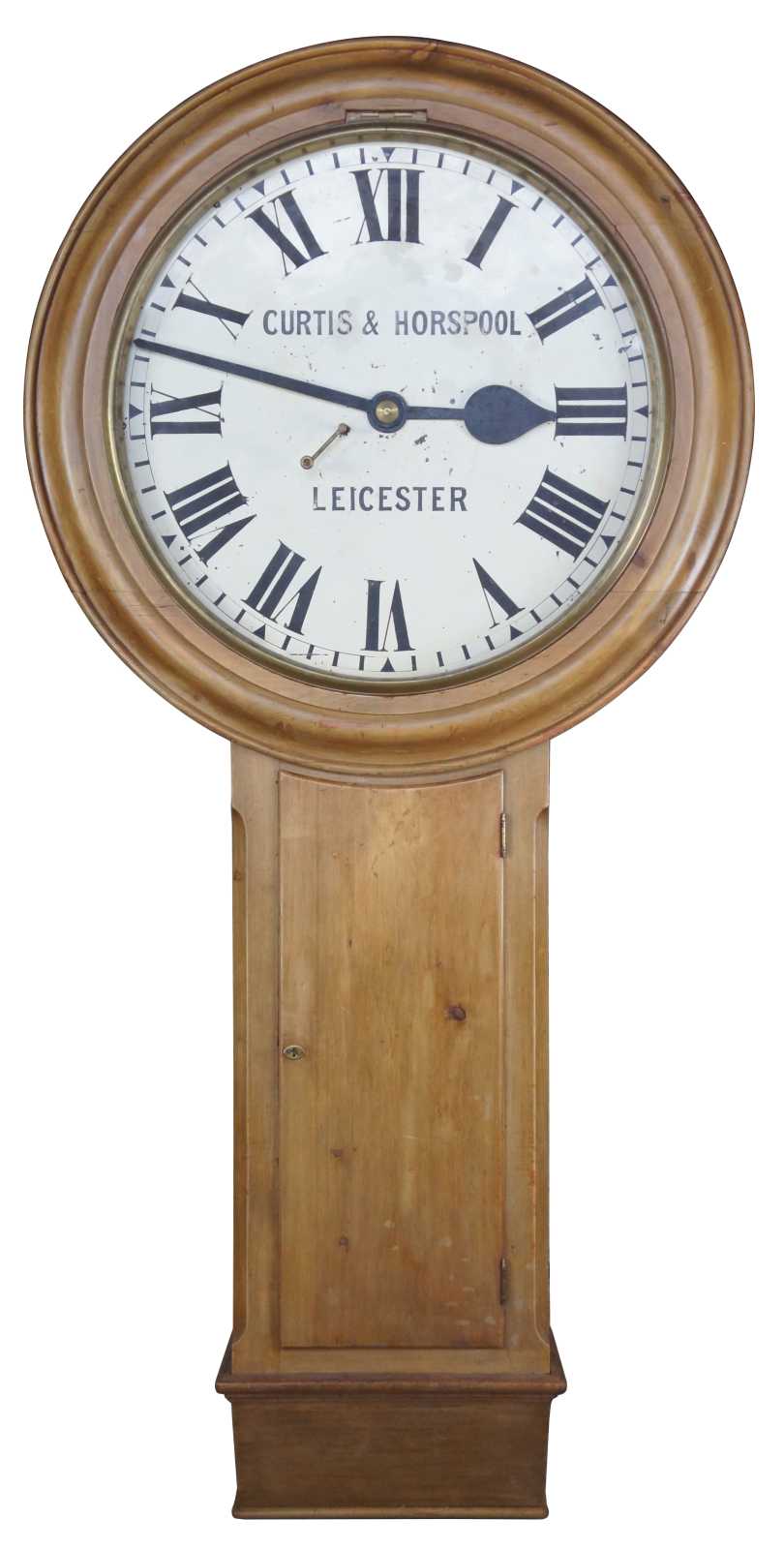
Shipping:
Free Shipping Included
Delivery:
Estimated 2-15 Business Days
Payments:
Credit Card, Check, Cash, PayPal, Apple Pay, Venmo
Returns:
30 Days 100% Money Back Guarantee, Buyer Pays Return Shipping
Description
18th century monumental museum quality Act of Parliament clock. Made from pine with a large round face over elongated case. Features an enameled metal face marked Curtis Horspool in Leicester, London England. Curtis was the royal watchmaker of the Prince of Wales.
As a result of an Act passed by the English Parliament in 1797 tavern clocks were hung in every pub and tavern throughout the British Isles. The Act declared that a tax would be collected on every clock in the realm.
As a result many private clock owners either hid their clocks or got rid of them altogether. Thus taverns and pubs became the preferred location for obtaining the correct time. The Tavern owners did not mind paying the tax because the towns people had to stop by if they wanted to find out what time it was. This resulted in more people eating and drinking at the Tavern.
An ""Act of Parliament clock"" is a type of large weight driven wall clock originally hung in inns and taverns in the United Kingdom, beginning in the mid-18th century. Such clocks were plain in design, the faces were around two to five feet in diameter, and they were hung on the wall. They were also commonly called Tavern Clocks.
The term ""Act of Parliament clock"" came about long after these clocks were already in existence. In 1797, a tax against clocks of five shillings was introduced in the Kingdom of Great Britain by the Prime Minister William Pitt. The tax was very unpopular among clockmakers and was repealed after nine months. The large clocks in inns were later popularly said to have been developed as a response to this tax.
Condition
Good Antique Condition; Missing Glass face
Dimensions
40.5" x 86" x 12"
You May Also Like